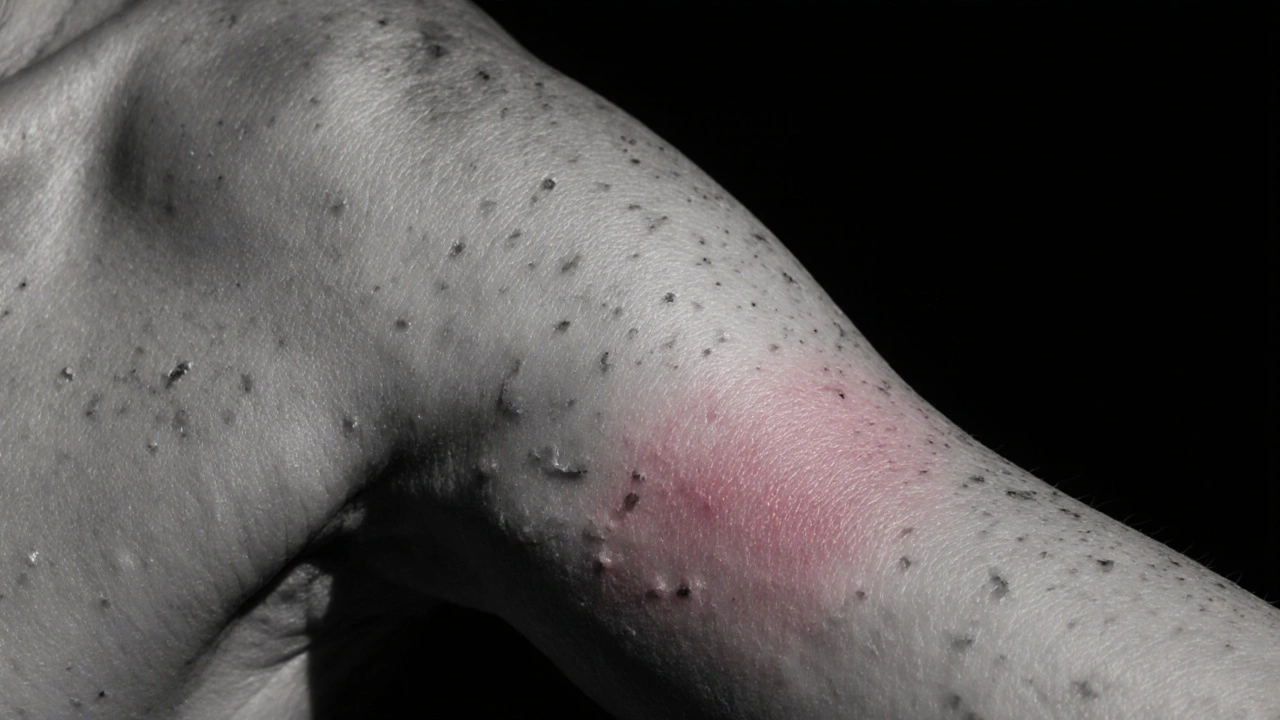Itching: Causes, Symptoms, and Relief Strategies
When dealing with itching, the uncomfortable urge to scratch that signals a problem in the skin or body. Also known as pruritus, it can arise from many sources. One of the most common triggers is an Allergic reaction, where the immune system releases histamine and other chemicals that make nerve endings fire. Dermatitis, whether atopic, contact, or seborrheic, often leads to persistent itching because inflammation damages the skin barrier. Parasites such as scabies or hookworm burrow into the epidermis, provoking intense, localized itching that worsens at night. Even prescription drugs can cause itching; many antibiotics, antihypertensives, and chemotherapy agents list pruritus as a side effect, reflecting the body’s reaction to foreign compounds. Itching therefore serves as a warning sign that can point to anything from a mild allergy to a serious systemic condition.
Common Triggers and When to Seek Help
Understanding the link between itching and its root causes helps you decide when home remedies are enough and when professional care is needed. If the itch is accompanied by a rash that spreads quickly, swelling, or difficulty breathing, it likely signals a severe allergic reaction that requires emergency treatment. Chronic itching that lasts weeks, especially with dry, scaly patches, often indicates dermatitis; moisturizers and topical steroids can help, but a dermatologist may be necessary for stronger prescription options. Persistent itch without a visible rash could hint at an internal issue such as liver or kidney disease, or a drug side effect, so a medical review of your medication list is wise. For suspected parasitic infections, look for burrows, tiny bumps, or intense nocturnal itching; over‑the‑counter scabicides can work, yet a clinician should confirm the diagnosis and ensure complete eradication.
Besides these medical routes, simple lifestyle tweaks can ease many itching episodes. Keeping skin moisturized after bathing, using lukewarm water instead of hot showers, and avoiding known irritants (like harsh soaps or nickel‑containing jewelry) reduces the activation of itch receptors. Antihistamines taken orally or as eye drops can blunt the histamine response during allergy season, while cool compresses calm inflamed skin. When itching disrupts sleep, a nightly routine that includes a fragrance‑free moisturizer and a short, cool shower often makes a noticeable difference.
By now you’ve seen how itching intertwines with allergic reactions, dermatitis, parasites, and medication side effects, and you’ve got a toolbox of practical steps to tackle it. Below, you’ll find a curated collection of articles that dive deeper into each of these areas—ranging from drug‑induced itching to parasite‑related skin issues—so you can pick the exact advice that matches your situation and start finding relief today.

 Oct, 17 2025
Oct, 17 2025